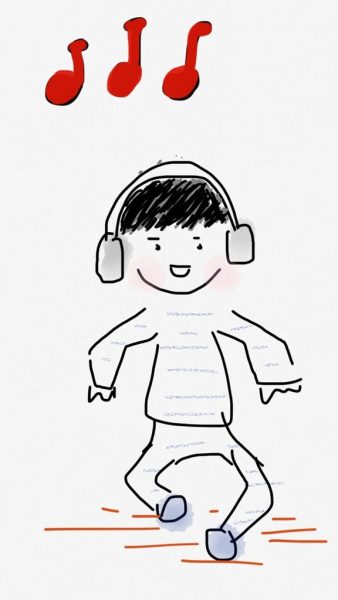
Introduction: Taylor Swift. I’m pretty sure you’ve heard of her. Ever since her debut in 2006, she has made a name for herself as a singer, songwriter, and pop culture phenomenon. Currently one of the biggest artists in the world, Swift’s momentum has not seemed to stall even as the 2020s decade continues. Though much of her output this decade has consisted of re-recordings from previous albums, albeit many being released with extra tracks of a similar theme, she has still found the time to release new solo music. This is made even more impressive with the time spent on her Eras Tour, which celebrates the “eras” of her past records, and which has become the first tour to earn over a billion dollars. It was definitely popular among the public. Looking at her studio album catalogue, with her more folk-pop oriented efforts “Folklore” and “Evermore” releasing in 2020, Swift would make a return to a more synthpop-centric sound with “Midnights,” released in 2022. It was while accepting a Grammy for best pop vocal album for “Midnights” earlier this year that she would announce the release of her next album. This announcement was accompanied by additional information released on her website, along with a fake website “crash” beforehand which contained a source code containing cryptic, non-English words meant to describe the album. With lots of anticipation building up for its release, “The Tortured Poets Department” would release on April 19, 2024. Here, I will go into both my analysis of the album, as well as my personal opinions from a critical standpoint.

https://creativecommons.org/licenses/by-nc-nd/3.0/
Production: Despite my limited experience with Taylor Swift’s music, “Folklore” being the only other full album I have heard of hers, I still feel confident in saying “The Tortured Poets Department” comes across as a fairly low key release from her. Much of the production is atmospheric and airy, made of light synth pads and arpeggios, tapping kick drum hits, and faint guitar notes. The album was produced primarily by Swift herself, Jack Antonoff, and Aaron Dessner, both of whom have worked with Taylor Swift before. Antonoff and Swift have worked closely ever since “1989,” released in 2014, and he has worked on such famous Swift songs as “Cruel Summer,” “Getaway Car,” and “Anti-Hero.” Meanwhile, Dessner is a member of rock band “The National,” and either produced or helped produce a majority of the songs on “Folklore” and “Evermore.”
On “The Tortured Poets Department,” the production generally functions as either a part of the background or a tool to help accentuate Swift’s voice. Especially as the album ventures further into slower ballads during its second half, the production feels more low key, clearly not meant to be the main focus for the most part. I will still talk about it anyway. Many of the songs on “The Tortured Poets Department” slowly build into their choruses in a way that feels very natural with almost seamless transitions. The songs are bolstered by the moving production even if Swift’s own tone of voice barely changes. The intro songs “Fortnight” and “The Tortured Poets Department” are great examples, as they move more naturally into choruses that still feel grand, but remain focused on soft and smooth melodies. There are some exceptions to the rule however, such as “Florida!!!” with its thudding guitar chords, and “I Can Do It With A Broken Heart,” with its fluttering synth arpeggios and trap-like drums on the chorus, though their choruses stand out amongst the others because of it. “Guilty As Sin?” also seems to incorporate a slightly different approach, using live drum kits and guitars that differentiate the song’s sound from the rest of the album, even if it maintains the strategy of building into a smooth chorus. All the same, the production generally can help to elevate the songwriting and melodies within the album, but much of the album’s focus is on the aforementioned songwriting and melodies, and I’ll discuss those more here.

https://creativecommons.org/licenses/by/2.0/ (Clarence Ji)
Songwriting: Throughout “The Tortured Poets Department,” admittedly, a lot of the lyrical subject matter remains focused on the same topic of post-breakup moodiness. A majority of the songs center around Swift’s emotions after a given breakup, as conflicting and messy as they may be. Songs such as “Fortnight” and “loml” focus on a sort of regretful longing and nostalgia when looking back on a relationship, while others such as “The Smallest Man That Ever Lived,” “Down Bad,” and “So Long, London” focus more on feelings of resentment and heartache. Certain songs even look at the eagerness and confidence in a relationship that may have been present at the start, such as “The Tortured Poets Department,” “But Daddy I Love Him,” and “I Can Fix Him (No Really I Can).” Altogether, though the actual subject matter of her songs remains largely the same, the exact way Swift talks about and explores these subjects varies, though she may either be discussing difficult emotions from one relationship or writing songs about multiple people.
Her writing style often involves elevating these feelings and circumstances to dramatic proportions, almost as if the world and Swift’s own well being hinges on the future of these romantic tribulations. The album title even hints at this comparison, subconsciously likening Swift herself as a “tortured poet,” someone who has been through trials and hardship from a relationship and is writing poetry and soliloquies to cope. Some of the most notable examples of her dramatic approach to breakup would include her likening the gossip and rumors following a breakup to her being put on trial and hung on the song “Who’s Afraid Of Little Old Me?” and her determination and passion to reunite with her partner being compared to a follow-up call after serving time in prison on the song “Fresh Out The Slammer.” Generally, each song also goes into detail on her own emotions, how she perceives her ex or partner in the relationship, how she sees others involved, and the scope of the situation, and this is where much of the emotional core of the album is rooted. Swift often likens herself to someone who’s been left hurt or “tortured” from these relationships, particularly during some of the more resentful aspects of these songs, which feeds into the grander scale that is given to the subject matter.

https://creativecommons.org/licenses/by/2.0/
Performance: Similarly to the production, with exceptions, Swift’s own performances stay more reserved. Focusing on intimate and drawn out melodies instead of stadium-ready pop choruses, Swift relies more on the ability of her voice combined with production to entrance the listener and feel the same post-break-up moodiness she attempts to convey through her own lyrics. This gives room for her own voice to shine, and some of these songs are bolstered by or rely on her own melodies, while those with more of a lyrical focus have her giving relatively stagnant tunes. For example, songs such as “Guilty As Sin?” and “Down Bad” do a great job of showing off the softer side of her voice within a pop context, while songs such as “Who’s Afraid Of Little Old Me?” and “The Smallest Man Who Ever Lived,” two of the more drawn-out ballads in the track list with more of a songwriting focus, hear her voice change relatively little. All of this is in an attempt to impact the listener at a more personal and introspective level, which is also the reason for the more minimal production. Swift’s singing performances on the album, though technically proficient, could benefit from more variation or expression at points however, particularly within more of the ballads. When she uses her voice to come through with more low-key but passionate choruses, the purpose of the album and its production is made that more clear, but when it doesn’t, the songs can feel more lengthy and, particularly in the second half, more repetitive. Overall, her performances are generally well done, even if I personally feel that more variation would benefit.

https://creativecommons.org/publicdomain/mark/1.0/
Personal Enjoyment and Thoughts: In terms of my personal enjoyment of the album, I felt that “The Tortured Poets Department” was decent, but not much more, with its strengths and weaknesses. I thought the production was one of the album’s most important strengths, as the more atmospheric pop aesthetic and slow synth builds worked a majority of the time. With certain songs such as “Fortnight,” when the song uses synths and the song’s established atmosphere to slowly build into a lighter and more memorable chorus, the emotion behind Swift’s writing best shines through, and the quality of the song improves because of it. When the production, as well as Swift’s vocal performances, help to sell the emotions she is writing about in a subtle but natural way, I believe the album is at its strongest. However, when both fail, I think the album hits its weakest points. During the back half of the album, where the production becomes more repetitive and homogenous, Swift’s performances become less melodic and more stoic, and the flaws in the album’s writing are more clear. With the subject matter and emotional appeal of the album being consistent, some vocal or production variation during the second half, along with certain songs in the first half, would have helped the album feel like a more dynamic and intriguing experience overall.
Regarding my own thoughts on the writing, I do feel like the more dramatic scale could generally have been better executed, and this is what personally makes or breaks a lot of songs on the album. On many occasions, the album feels not like Swift selling a grander story or narrative, but exaggerating certain events that may feel like the world to one person, but could be better communicated so that the listener feels that way. Certain lines such as “You don’t get to tell me about sad” and “Rivulets descend my plastic smile. But you should’ve seen him when he first got me,” come across as exaggeration that is not backed by the more dry performances or production and falls flat. To me, songs such as “My Boy Only Breaks His Favorite Toys” are examples of what happens when the pieces of the album struggle to fit together, while songs such as “Guilty As Sin?” are examples of when they fit together effortlessly. The former has more drab production than I would prefer, with the plodding drums and low buzzing synths in the background combined with the wearisome chorus creating a sense of monotony that fails, for me, to sell the heartbreaking lyrics Swift is trying to convey. Meanwhile, I think the latter is similarly slow but manages to feel more colorful, conveying Swift’s internal struggle between the reality of a relationship and her own restless thoughts. The writing sets the scene well, and the production is more low key while still feeling lively and vibrant, motioning into a catchy and mesmerizing chorus effortlessly. I think this song and my other favorites show what the album could be capable of when all the pieces fit together, but I feel the project could have been more consistent by making better use of these elements.
Nonetheless, at the end of the day, this is just my opinion, and if you have heard the album or now feel motivated to, please feel free to listen and let me know your own thoughts!
Favorites: Fortnight, But Daddy I Love Him, Guilty As Sin?
Least Favorite: My Boy Only Breaks His Favorite Toys













